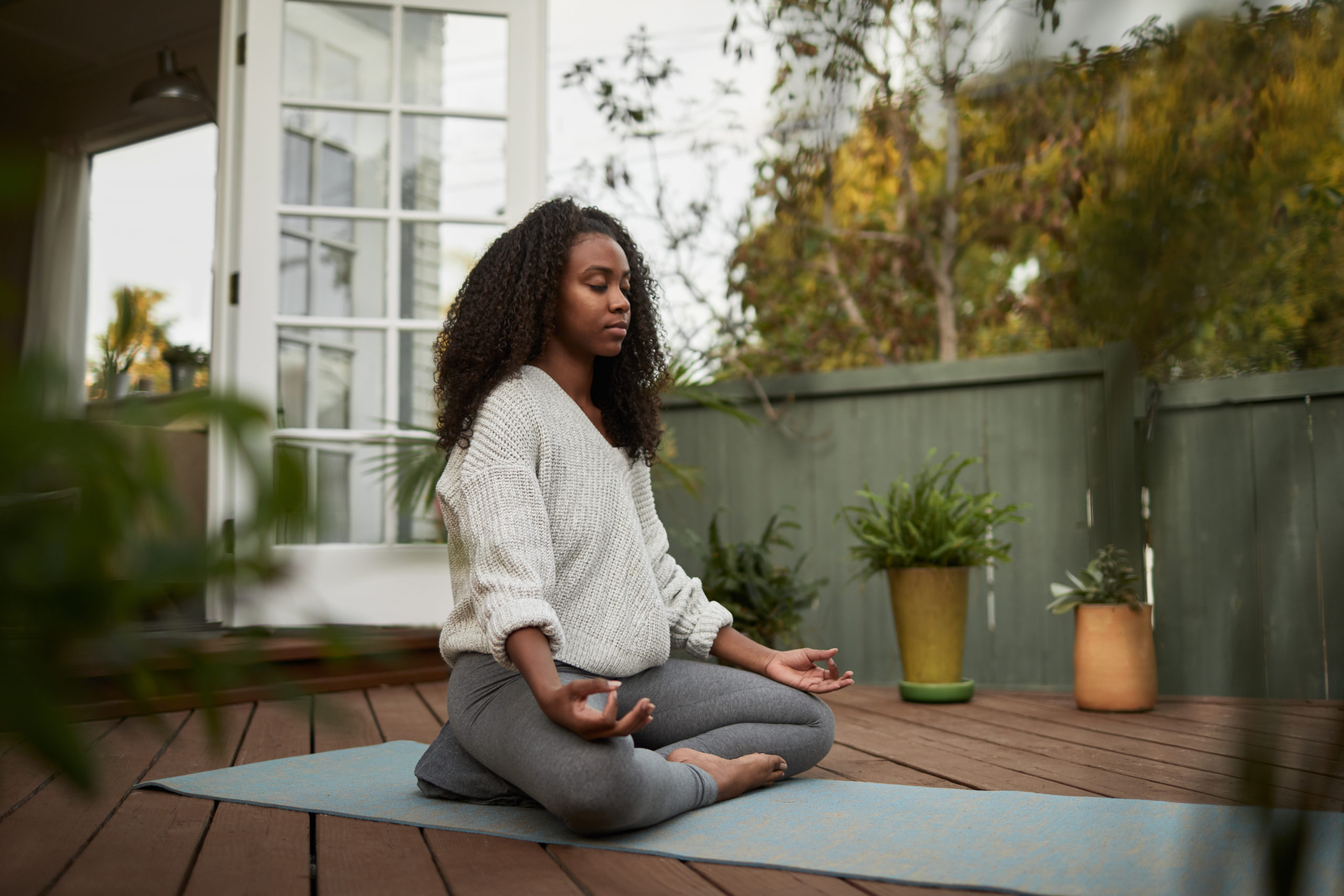
Despite the wealth of data supporting the mental and physical benefits of meditation, I encounter a great number of patients who find it difficult to incorporate it into their wellness plan.
Some of the top reported reasons are below:
“I’m not good at it”
Let’s face it, most people avoid things they aren’t good at but sometimes our expectations of ourselves are the issue. It is called the practice of meditation because it actually requires practice to see improvement.
Most of us aren’t able to start off with longer meditations right out the gate and attempting to do so can typically lead to a lot of frustration.
To avoid that, I recommend that you begin with one or two-minute meditations and slowly build up as tolerated.
Mastering shorter durations can build confidence and increase your comfort levels, allowing you to work your way up to longer sessions with ease.

“I can’t stop my mind from wandering”
Being busy is a way of life for most of us. Our to-do lists are long, and we are constantly pulled between our work lives and personal lives, so sometimes it is hard to shut that off during meditation.
The good news is it is okay that your mind may wander at times and many people experience that, especially in the beginning.
If you do find your mind wandering, don’t let it go very far. When you catch yourself thinking too much, find an anchoring word or activity that will bring the focus back to meditation.
Choose your anchoring word. I recommend calm or simply focus as the word. When you find your thoughts going, focus on the word by visualizing it in your head in detail.
Think of the color of the word, font, size, etc and allow that to take you back to your practice. Another technique is an anchoring activity such as focusing on your breathing.
In this case, when your mind wanders you bring your attention back to your breathing with focus on the breath and its travels from inhale to exhale. Repeat this for as many breaths as necessary until the thoughts are quieter.
“I don’t identify with the voices on the apps”
The great majority of meditation apps are lacking Black voices and for many of us, this leads to difficulty engaging.
Even though we are lacking representation in this space, there have been advances in the past year with more options if you are looking for Black voices.
- Liberate app – Liberate is a subscription-based meditation app with meditation practices and talks with the Black community in mind and by Black people
- Black Zen – Black Zen provides an inexpensive meditation guide with a calendar and progress tracker
- Exhale app – Exhale is designed for Black, Indigenous, Women of Color. This app
Regardless of your issue with meditation, learning to overcome those barriers can improve your overall mental and physical health.








